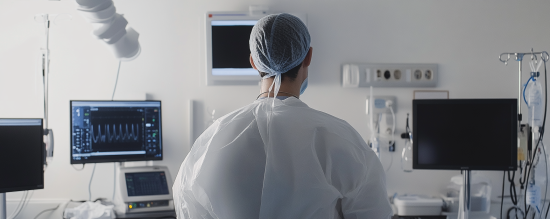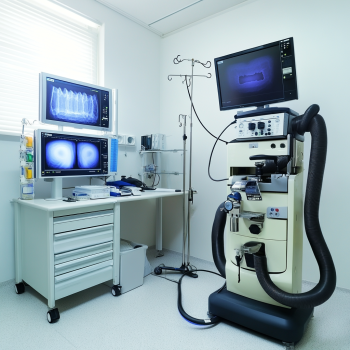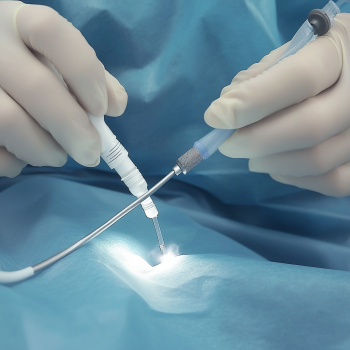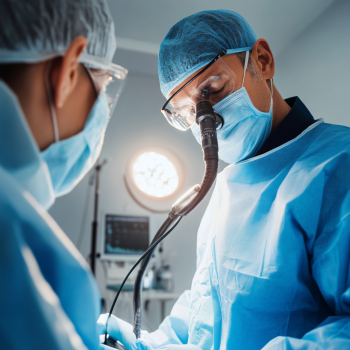
Endoscopic Procedures For Liver Diseases
An Endoscopic procedure is a trusted and functional way to scrutinize the body’s internal organs. The process involves utilizing an endoscope which is a long flexible tube attached with a tiny camera and a light at the tip, to get a clear view of the internal parts of your body.
What is Endoscopy?
Endoscopy is an easy, nonsurgical procedure that allows the doctors to take a close view of your digestive tract. With the help of a thin, flexible tube called an endoscope, which has a light and camera at the tip, your doctor can easily and clearly see inside your esophagus, stomach, including the upper part of your small intestine. The endoscope is gently inserted through your mouth during an upper gastrointestinal endoscopy, allowing your doctor to view the inner lining on a color monitor and even take pictures for further examination.
When do you need to go ahead for an Endoscopy?

Endoscopy is usually performed to diagnose and sometimes treat conditions affecting the upper digestive system, including the esophagus, stomach, and the starting point of the small intestine (duodenum). It helps probe digestive issues like nausea, vomiting, abdominal pain, acidity, heartburn, difficulty swallowing, and gastrointestinal bleeding. During an endoscopy, small tissue samples (biopsies) can be taken from areas that look abnormal to check for inflammation, infection, or cancer.
Additionally, endoscopy is often used to control digestive bleeding, treat esophageal narrowing (stricture), and remove polyps or early-stage stomach cancers.
How safe is an Endoscopy Procedure?
Endoscopy is generally a simple and safe procedure. To ensure the patient’s comfort, it’s typically performed under light sedation, though it can be done without sedation if preferred. Thanks to the modern and sophisticated automatic endoscope disinfectors, there’s no risk of transmission of infection between patients. After the procedure, there is a possibility that you experience mild throat soreness and a feeling of fullness in the belly because of the air introduced into the stomach during the process.
Why is an endoscopy performed on patients with liver disease?
Many patients who are suffering from advanced liver disease, the endoscopy procedure is used to check for enlarged blood vessels in the esophagus and stomach, known as varices. These varices pose a serious risk as they can rupture and cause severe, life-threatening bleeding. To prevent this, special rubber bands are placed on the varices during the procedure to reduce the risk of rupture and bleeding.
How should you prepare before the procedure?
Your doctor or nurse will give you a specific set of instructions to prepare for your endoscopy. You’ll need to fast (no food or water) for at least 8 hours to make sure your stomach is empty for Endoscopy. If you’re taking blood-thinning medications like aspirin, clopidogrel, or warfarin, let your doctor know, as you may need to stop them a few days prior. If you are already suffering from chronic conditions such as diabetes, heart disease, or high blood pressure, your doctor will suggest you with a tailored rulebook to follow on how to consume your medications before the procedure.
How is the procedure performed?

During the start of the procedure, mainly the upper endoscopy, you’ll be asked to lie on your back or left side on a table. Monitors will be connected to examine your breathing, blood pressure, as well as the heart rate. A numbing spray will be applied to your throat, and you might receive a sedative through an IV in your forearm to help you relax. You’ll hold a plastic mouth guard so that your mouth remains open while the endoscope is inserted. Your doctor will also ask you to swallow as the scope moves down your throat. There is a high possibility that You will feel some pressure, but it shouldn’t be painful, and certainly your breathing won’t be affected. As the endoscope goes down your esophagus, a small camera at its tip sends images to a video monitor, permitting your doctor to look for any abnormalities. Air is introduced into your esophagus and stomach to better view the inner lining, which might create a sensation of pressure or fullness. The doctor will use multiple Specialized tools to take tissue samples or remove polyps if needed. Ultimately when the examination is complete, the endoscope is softly withdrawn through your mouth.
Endoscopic Procedure for Liver Issues Treatment
A small tissue sample, or biopsy is taken from the lining of the gut to examine or study for abnormal cells or tissue. The particular sample is analyzed through histology and pathology tests.

If X-rays indicate a gallstone blocking the bile duct, the doctor will most likely carry out a sphincterotomy, which implies making an incision to permit the stone to enter the duodenum.
In cases where the bile duct is narrowed, a stent may be placed to open it up and prevent it from collapsing. The stent helps drain bile into the duodenum and can remain in place as needed.
Your aftercare will be based on the results of the ERCP. If there was a stent placement in your body or gallstones removed, you might need to stay overnight in the hospital. Avoid driving for 24 hours after receiving sedation. You can take support of your friend or a relative to drive you home and to stay with you for the first 24 hours post-discharge. Your doctor will give you advice on managing any potential issues after the ERCP.
Endoscopic techniques are also used to treat bleeding varices, which are swollen veins in the stomach and esophagus. The most common method is variceal banding. Occasionally, sclerotherapy is used, where a saline solution is injected into the vein to collapse and seal it. This redirects blood through other veins, and the collapsed vein is gradually reabsorbed by the body.
If you are looking out for Endoscopy in Chennai call our Lead Hepatologist, Dr. Hemamala Ilango today.

Leave a Reply